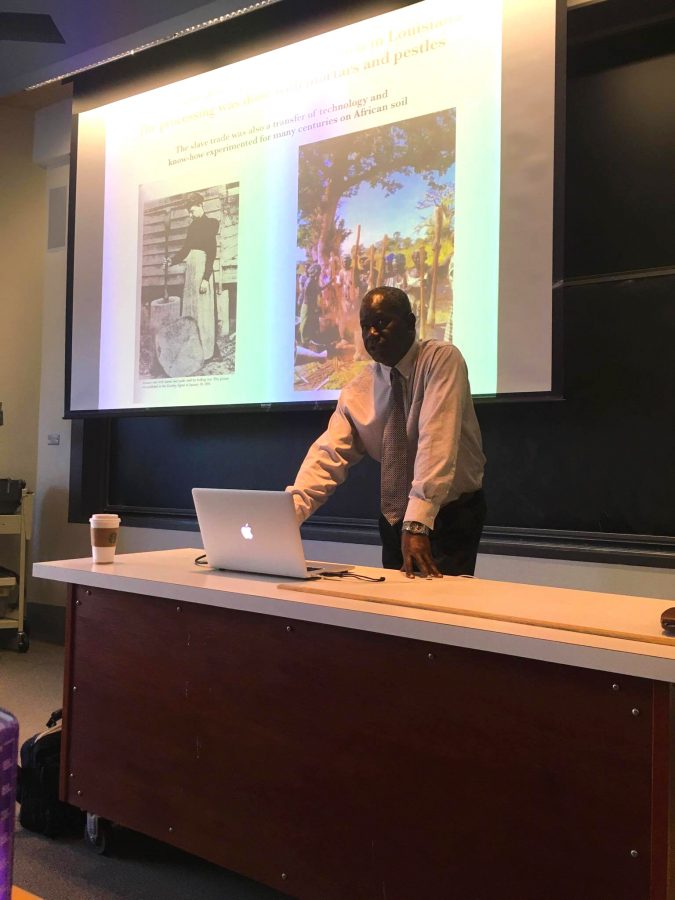Dr. Ibrahima Seck opened his talk Wednesday questioning his audience about their knowledge of slavery and the importance of its impact on today’s society.
“If you don’t know the problem, how can you solve it?” Seck asked.
In his lecture, “A Journey Through Slavery at the Whitney Plantation,” Seck spoke about the Whitney Plantation in Louisiana, its history and the importance of learning the story of slavery at a young age. The lecture was hosted by the the Africana Studies program and sponsored by the David L., Sr. and Helen J. Temple Visiting Lecture Series Fund in Africana Studies.
Seck is the Director of Research at the Whitney Plantation Slavery Museum. He went through the map of the plantation itself, the memorials for slaves who died and the history and lineage of its owners. However, Seck stressed that the backbone of the success of the plantation relied on slaves.
From there, Seck spoke about the lives of slaves on the plantation. Despite its dehumanizing nature, however, the souls of the slaves persevered, he said.
“The body can be broken, but the spirit was never broken,” Seck said.
Seck also stressed the importance of making this issue known to younger children. He explained how “racism is a construction,” and children are products of their environment.
This idea of integrating slavery into early education struck a cord with Kelsey Moum ’21. She said she felt Seck brought to light the issue of authentic history in terms of how slavery is taught in schools in the United States.
Seck was also concerned with the historical and cultural links between West Africa and the United States, specifically Louisiana. According to Seck, people are often quick to brush aside the roots of certain cultures and claim it to be their own.
An example of African culture Seck touched on was music, and the audience soon became actively involved as Seck encouraged the audience to dance along to the African music he began playing.
Princess Adeyinka ’20, who came from Nigeria at the age of five, felt Seck’s words really hit home. The only thing she had wished to see differently, however, was a bigger influx of people from different backgrounds.
Seck ended the lecture with a proverb he was told when he was younger.
“Truth is like fire, you may sit on it but not for too long.” He said he feels certain that a revolution may be underway if “our people don’t begin to realize that our world needs to change.”
No time was left for questions from the crowd. However, after his lecture. Seck echoed his earlier sentiments regarding the necessity of change in how people act in relation to the world around them.
The bottom line is “to make America a safer place,” for not just certain groups of people, but everybody, he said.





















































































































